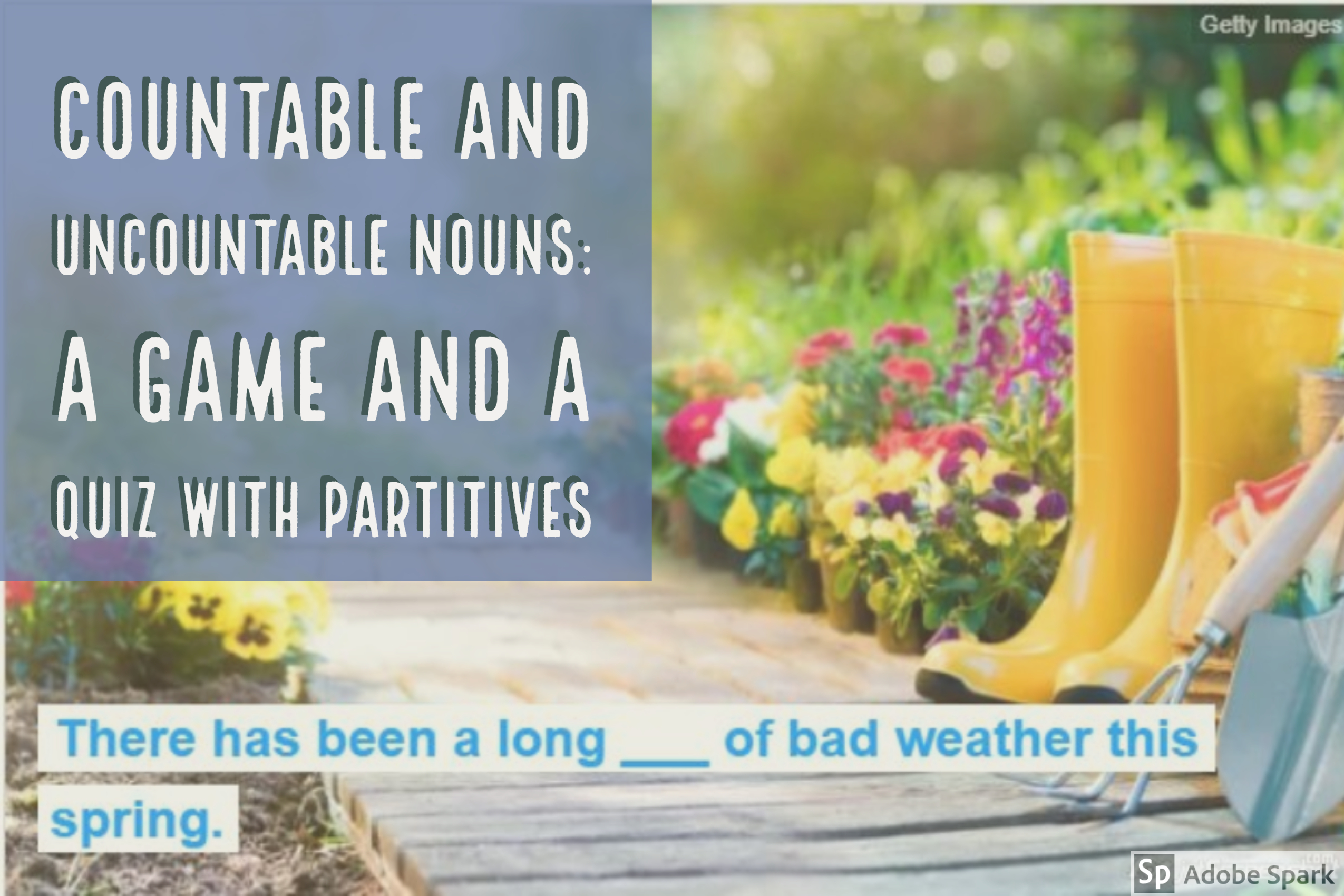Most of the times, it is easy to tell when a noun is countable (ie. can be counted) and when it is uncountable. Think about the words “dog” and “sugar”. Easy, isn’t it?
We can say one dog, two dogs or a dog, ie, you can count “dogs”
But can you count “sugar”? Of course, you can’t. You can’t say one sugar, two sugars or sugars, not even a sugar.

If only it were that easy! 🙂 Take for example vegetables and fruit. Vegetables are countable, but fruit is normally uncountable, though in some cases, to complicate things, it can be made plural when referring to different kinds of fruit.
The vast majority of commonly consumed fruits qualify as non-starchy.
Would you like some fruit for dessert?
There you have it, this is English!
If you want to know more about countable and uncountable nouns, here, it is clearly explained.
On this post, I want to share with you two activities I did with my Upper-intermediate students in case you want to use them in your classes.
Game: Sit down. Stand Up
The first one is a very simple activity, perfect to use after a tedious lesson when you see attention is beginning to fade. Actually, it is not a game as there is no competition and nobody is eliminated but, to be honest, I don’t know how to call it. An energizer, perhaps? What is clear is that it will keep your students engaged and motivated.
I have used this activity with upper-intermediate students so the concept of countable or uncountable (mass) is not new to them.
Before the class: prepare a list of names that are clearly either countable or uncountable.
How to play:
- Tell students you are going to call out nouns that can be classified as either countable or uncountable.
- Tell them they will need to sit down if the noun is uncountable and stand up if it countable.
This is the list of nouns I have used:
Uncountable nouns: weather, advice, accommodation, luggage, staff, furniture, scenery, rubbish, behaviour, health, cotton, politics, work, homework, news, clothes, money
Countable: vegetables, worksheet, newspaper, item, journey, grape, difference
As you can see there are far more uncountable than countable nouns because my students already have a clear idea of what countable and uncountable means. If you are introducing this concept for the first time, I would suggest you use more or less the same number of countable and uncountable nouns.
The Quiz
So, how can we make an uncountable noun countable? That’s easy! Very often, we can use “a piece of…” before the uncountable nouns.
We can say:
A piece of fruit/cake/cheese/baggage/furniture/news/rubbish/research… etc
But English wouldn’t be considered one of the richest languages if you could just use “ a piece of” with every uncountable noun, would it? So here’s a quiz where you will learn some other partitive structures used with uncountable nouns.
How I suggest you work with the quiz:
You can certainly do the quiz once if you have a prodigious memory and are able to remember every combination, but if you are like the rest of the mortals, taking the quiz once is not enough.
I would suggest taking the quiz two or three times, then writing down all the combinations you can remember and then taking the quiz again to check and consolidate.
